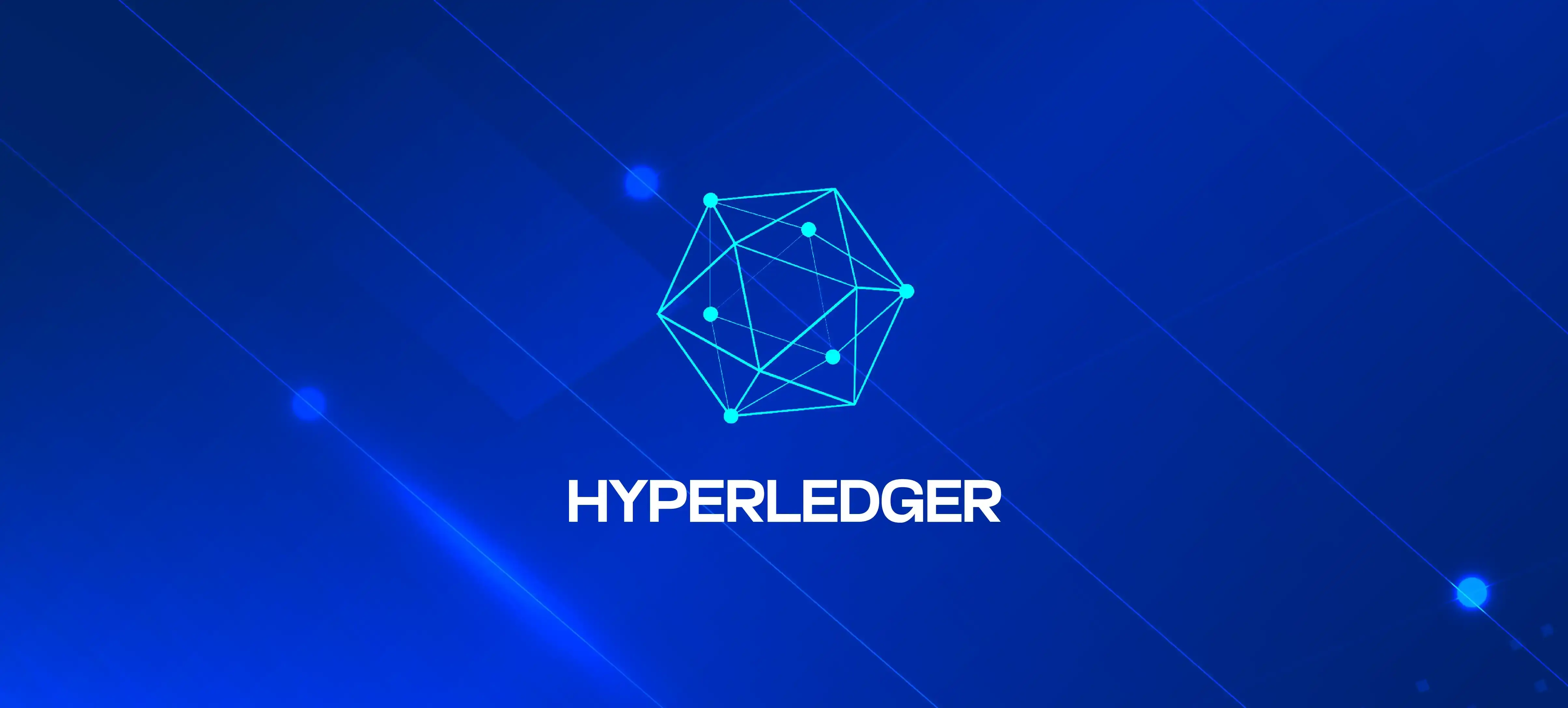
Navigating The Risks of Safe Investment in Blockchain
Table of Contents
As rising business costs, accelerating fee pressure, and ever-evolving buyer preferences continue to disrupt the investment landscape, the pursuit of unconventional, innovative, and differentiating solutions has become more than ever. To keep up with the fast-paced competition, investment firms are cutting through hype toward exploring capabilities within the blockchain.
While the potential of blockchain to transform the heavily disruptive industry is more accurate than ever, a few key hurdles remain. Why is blockchain disruption not materializing at that pace? Will we have any early indications for massive disruption? What are leading firms doing with blockchain? How can beginners start experimenting with it and close the gap?
Such questions are at the top of executives of leading blockchain investment firms worldwide.
Why Invest in Blockchain?
Blockchain is an emerging technology helping businesses to become more efficient by earning them higher profits over time.
With blockchain’s peer-to-peer transfer of digital assets you don’t need to rely on one centralized autonomy. Due to cryptocurrencies, digital assets are becoming more and more comprehensive set of applications.
Blockchain features like decentralization, higher profits and volatility are attracting investors of every domain, compelling them to invest in this emerging market.
Fidelity Digital Assets recently conducted a survey indicating that 70% of investors expect to invest or buy in blockchain digital assets. In contrast, over 90% showed interest in allocating digital assets to their institution's portfolio in a few years.
Overall, the image of digital assets is pretty good among surveyed investors; a general sentiment has been increasing yearly, specifically in Asia and Europe.
The below factors make investment in blockchain digital assets much more attractive:
-
Blockchain can help organizations to become more efficient, with higher profitability over time.
-
Blockchain is getting high-profile attention among big tech firms, including Salesforce and Amazon.
-
Due to COVID-19, the world is shifting quickly to the digital age, and blockchain goes side by side with other adjacent techs, including e-commerce, cloud computing, and machine learning.
It is important to be mindful of potential risks associated with investments in blockchain, particularly in relation to underlying assets.
-
Numerous new cryptocurrencies are emerging within blockchain projects, and their success is uncertain.
-
The value of cryptocurrencies can fluctuate greatly, and investing in them carries the possibility of losing your initial investment.
-
The International Monetary Fund (IMF) has expressed the viewpoint that granting official currency or legal tender status to crypto assets could compromise monetary sovereignty and stability, a sentiment shared by many directors.
Investment Complexities in Blockchain
When investing in blockchain, you can rely on something other than a standard trading platform. In this world, you encounter multiple exchanges and unimaginable levels of reputation, security, compliance, and transparency. This is then topped with complex financial regulations, funding, and onboarding systems. Such interconnectivity of platforms brings liquidity fragmentation as well.
Due to this, many institutional service providers opt for integrated execution services. Institutional providers are also offering smart order routing solutions to allow clients single account funding and access to multiple liquidity options. It is also expected to improve price execution and capital efficiency.
Blockchain Assets Other Than Crypto
Blockchain technology has gained significant attention primarily due to its association with cryptocurrencies like Bitcoin and Ethereum. However, blockchain's potential extends far beyond digital coins. The decentralized and transparent nature of blockchain makes it an ideal platform for various asset types. Let's explore four unique blockchain assets:
Tokenized Real Estate
Tokenization is the onboarding process of digital assets on a blockchain network. Traditionally illiquid and challenging to divide, real estate can be tokenized, allowing investors to buy fractional ownership in properties. This innovation opens up opportunities for smaller investors and enhances liquidity in the real estate market. Tokenized real estate provides transparency, reduces intermediaries, and facilitates efficient property transactions globally.
Intellectual Property
Blockchain technology offers a secure and immutable environment for protecting intellectual property (IP) rights. On a blockchain, creators can establish indisputable proof of ownership and timestamp their creations by storing digital assets, such as patents, trademarks, and copyrights. Smart contracts can automate licensing agreements and royalty payments, ensuring creators receive fair compensation while eliminating intermediaries and reducing copyright infringement risks.
Supply Chain Assets
Supply chain management involves complex processes involving multiple stakeholders and significant challenges like counterfeit products and opaque tracking systems. Blockchain's transparency and traceability make it an ideal solution for tracking and verifying supply chain assets. By recording every transaction and movement on a blockchain, stakeholders can ensure product authenticity, origin, and quality, ultimately improving efficiency and consumer trust.
Tokenized Art and Collectibles
Blockchain-based platforms enable the tokenization of art, collectibles, and other valuable assets. NFTs ensure provenance, authenticity, and scarcity of digital assets, revolutionizing the art market and providing artists with new monetization opportunities. Additionally, blockchain's decentralized nature prevents counterfeit artwork and provides transparent ownership history.
The most expensive NFT, Clock, was sold On 9 February 2023 for 16,593 ETH, about $53.7 million at the time of the transaction. The NFT market is poised to grow from USD 21.93 billion in 2022 to USD 212 billion in 2030, growing exponentially at a 33.7% CAGR rate.
How to Invest in Blockchain?
There are several ways to step into the world of blockchain investment. You can participate in subsidizing a new cryptocurrency through an initial coin offering (ICO) or investing in public companies involved in blockchain.
You can also purchase shares of companies working with blockchain technology or developing it, such as BMW or Starbucks. After all, incorporating a digital ledger system can make your company leaner and more profitable, and higher profits equal higher share prices over the long term.
Here are some prominent blockchain industries to consider investing in:
-
Individual blockchain stocks (general companies)
-
Individual blockchain stocks: crypto-related companies
-
Blockchain-Based Gaming
-
Blockchain real estate investment
-
Blockchain in Energy
-
Blockchain-Based Intellectual Property (IP) Protection.
Top Blockchain Companies to Invest In
With that in mind, here's a list of blockchain companies to consider if you want explore to this exciting technology in your stock portfolio.
Multiple publicly traded companies now integrate blockchain technology in their operations, provide services related to blockchain, or play a centric role in the cryptocurrency industry. While some are exclusively blockchain innovation-focused, others are using blockchain products and services to complement the existing success of the business.
With such an idea in mind, here is a list of top blockchain companies to consider if you look forward to how to invest in blockchain stocks.
Nvidia
Nvidia is a part of several long-term technology trends, including cloud computing, AI, and autonomous vehicle engineering. Moreover, crypto miners worldwide support proof-of-work (PoW) blockchain networks that use high-end Nvidia graphics to mine coins.
A CFRA analysis of Nvidia's data center with positive momentum and investment in blockchain generative AI technology will support Nvidia's growth outlook.
According to 33 Wall Street analysts' predictions over the past 3 months, the average price target for Nvidia is $464.85, ranging from a high forecast of $600.00 to low estimates of $320.00. This average price target indicates an expected 8.04% change from Nvidia's last recorded price of $430.25.
Block
A FinTech giant Block, formally known as Square (SQ -2.06%), has two central portions in its business. One is its payment processing ecosystem for medium-small companies and Cash App financial platform.
Based on forecasts from 39 analysts, the median price target for Block Inc is $88.00, with a high estimate of $114.62 and a low estimate of $34.98. The median estimate suggests a positive increase of 37.22% from Block Inc's last recorded price of $64.13.
Amazon
Besides operating the world's largest e-commerce platform, Amazon (AMZN +5.32%) also leads in the cloud infrastructure services of Amazon Web Services. This web service platform provides Amazon Managed Blockchain, allowing customers to create and manage individual blockchain networks.
Based on forecasts from 48 analysts, the median price target for Amazon.com Inc is $138.00, with a high estimate of $270.00 and a low estimate of $85.00. The median estimate suggests a positive increase of 6.06% from Amazon.com Inc's last recorded price of $130.12.
IBM
We know that IBM's (IBM -1.88%) stock value has yet to be at supreme levels over the recent years. However, they have recently made some big moves to boost their growth. Its acquisition of Red Hat open-source software gave itself some prominent cross-selling opportunities for its enterprise clients.
Nevertheless, on the blockchain side, IBM has already transformed blockchain solutions for their clients like Renault (RNSDF +1.17%), Home Depot (HD +0.16%), and many more. If its blockchain-based solution gains more transactions, IBM can have a significant growth runway in the future.
A forecast from 13 wall street analysts, the median price target for IBM Corp is $140.00, with a high estimate of $162.00 and a low estimate of $110.00. The median estimate suggests a positive increase of 6.73% from International Machine Corp's last recorded price of #131.17.
Settle Up
When investing in blockchain, there are different avenues to explore. One can participate in initial coin offerings (ICOs), a best way to invest in blockchain, or purchase shares of companies leveraging blockchain solutions. Several prominent blockchain industries, such as blockchain-based gaming, blockchain in energy, and blockchain-based intellectual property protection, offer investment opportunities.
Investing in blockchain requires careful research, an understanding of the technology, and awareness of the associated risks. However, for those willing to navigate these challenges, blockchain technology's potential rewards and opportunities make it an intriguing and thrilling investment prospect in the ever-evolving landscape of finance and technology.
Table of Contents
As rising business costs, accelerating fee pressure, and ever-evolving buyer preferences continue to disrupt the investment landscape, the pursuit of unconventional, innovative, and differentiating solutions has become more than ever. To keep up with the fast-paced competition, investment firms are cutting through hype toward exploring capabilities within the blockchain.
While the potential of blockchain to transform the heavily disruptive industry is more accurate than ever, a few key hurdles remain. Why is blockchain disruption not materializing at that pace? Will we have any early indications for massive disruption? What are leading firms doing with blockchain? How can beginners start experimenting with it and close the gap?
Such questions are at the top of executives of leading blockchain investment firms worldwide.
Why Invest in Blockchain?
Blockchain is an emerging technology helping businesses to become more efficient by earning them higher profits over time.
With blockchain’s peer-to-peer transfer of digital assets you don’t need to rely on one centralized autonomy. Due to cryptocurrencies, digital assets are becoming more and more comprehensive set of applications.
Blockchain features like decentralization, higher profits and volatility are attracting investors of every domain, compelling them to invest in this emerging market.
Fidelity Digital Assets recently conducted a survey indicating that 70% of investors expect to invest or buy in blockchain digital assets. In contrast, over 90% showed interest in allocating digital assets to their institution's portfolio in a few years.
Overall, the image of digital assets is pretty good among surveyed investors; a general sentiment has been increasing yearly, specifically in Asia and Europe.
The below factors make investment in blockchain digital assets much more attractive:
-
Blockchain can help organizations to become more efficient, with higher profitability over time.
-
Blockchain is getting high-profile attention among big tech firms, including Salesforce and Amazon.
-
Due to COVID-19, the world is shifting quickly to the digital age, and blockchain goes side by side with other adjacent techs, including e-commerce, cloud computing, and machine learning.
It is important to be mindful of potential risks associated with investments in blockchain, particularly in relation to underlying assets.
-
Numerous new cryptocurrencies are emerging within blockchain projects, and their success is uncertain.
-
The value of cryptocurrencies can fluctuate greatly, and investing in them carries the possibility of losing your initial investment.
-
The International Monetary Fund (IMF) has expressed the viewpoint that granting official currency or legal tender status to crypto assets could compromise monetary sovereignty and stability, a sentiment shared by many directors.
Investment Complexities in Blockchain
When investing in blockchain, you can rely on something other than a standard trading platform. In this world, you encounter multiple exchanges and unimaginable levels of reputation, security, compliance, and transparency. This is then topped with complex financial regulations, funding, and onboarding systems. Such interconnectivity of platforms brings liquidity fragmentation as well.
Due to this, many institutional service providers opt for integrated execution services. Institutional providers are also offering smart order routing solutions to allow clients single account funding and access to multiple liquidity options. It is also expected to improve price execution and capital efficiency.
Blockchain Assets Other Than Crypto
Blockchain technology has gained significant attention primarily due to its association with cryptocurrencies like Bitcoin and Ethereum. However, blockchain's potential extends far beyond digital coins. The decentralized and transparent nature of blockchain makes it an ideal platform for various asset types. Let's explore four unique blockchain assets:
Tokenized Real Estate
Tokenization is the onboarding process of digital assets on a blockchain network. Traditionally illiquid and challenging to divide, real estate can be tokenized, allowing investors to buy fractional ownership in properties. This innovation opens up opportunities for smaller investors and enhances liquidity in the real estate market. Tokenized real estate provides transparency, reduces intermediaries, and facilitates efficient property transactions globally.
Intellectual Property
Blockchain technology offers a secure and immutable environment for protecting intellectual property (IP) rights. On a blockchain, creators can establish indisputable proof of ownership and timestamp their creations by storing digital assets, such as patents, trademarks, and copyrights. Smart contracts can automate licensing agreements and royalty payments, ensuring creators receive fair compensation while eliminating intermediaries and reducing copyright infringement risks.
Supply Chain Assets
Supply chain management involves complex processes involving multiple stakeholders and significant challenges like counterfeit products and opaque tracking systems. Blockchain's transparency and traceability make it an ideal solution for tracking and verifying supply chain assets. By recording every transaction and movement on a blockchain, stakeholders can ensure product authenticity, origin, and quality, ultimately improving efficiency and consumer trust.
Tokenized Art and Collectibles
Blockchain-based platforms enable the tokenization of art, collectibles, and other valuable assets. NFTs ensure provenance, authenticity, and scarcity of digital assets, revolutionizing the art market and providing artists with new monetization opportunities. Additionally, blockchain's decentralized nature prevents counterfeit artwork and provides transparent ownership history.
The most expensive NFT, Clock, was sold On 9 February 2023 for 16,593 ETH, about $53.7 million at the time of the transaction. The NFT market is poised to grow from USD 21.93 billion in 2022 to USD 212 billion in 2030, growing exponentially at a 33.7% CAGR rate.
How to Invest in Blockchain?
There are several ways to step into the world of blockchain investment. You can participate in subsidizing a new cryptocurrency through an initial coin offering (ICO) or investing in public companies involved in blockchain.
You can also purchase shares of companies working with blockchain technology or developing it, such as BMW or Starbucks. After all, incorporating a digital ledger system can make your company leaner and more profitable, and higher profits equal higher share prices over the long term.
Here are some prominent blockchain industries to consider investing in:
-
Individual blockchain stocks (general companies)
-
Individual blockchain stocks: crypto-related companies
-
Blockchain-Based Gaming
-
Blockchain real estate investment
-
Blockchain in Energy
-
Blockchain-Based Intellectual Property (IP) Protection.
Top Blockchain Companies to Invest In
With that in mind, here's a list of blockchain companies to consider if you want explore to this exciting technology in your stock portfolio.
Multiple publicly traded companies now integrate blockchain technology in their operations, provide services related to blockchain, or play a centric role in the cryptocurrency industry. While some are exclusively blockchain innovation-focused, others are using blockchain products and services to complement the existing success of the business.
With such an idea in mind, here is a list of top blockchain companies to consider if you look forward to how to invest in blockchain stocks.
Nvidia
Nvidia is a part of several long-term technology trends, including cloud computing, AI, and autonomous vehicle engineering. Moreover, crypto miners worldwide support proof-of-work (PoW) blockchain networks that use high-end Nvidia graphics to mine coins.
A CFRA analysis of Nvidia's data center with positive momentum and investment in blockchain generative AI technology will support Nvidia's growth outlook.
According to 33 Wall Street analysts' predictions over the past 3 months, the average price target for Nvidia is $464.85, ranging from a high forecast of $600.00 to low estimates of $320.00. This average price target indicates an expected 8.04% change from Nvidia's last recorded price of $430.25.
Block
A FinTech giant Block, formally known as Square (SQ -2.06%), has two central portions in its business. One is its payment processing ecosystem for medium-small companies and Cash App financial platform.
Based on forecasts from 39 analysts, the median price target for Block Inc is $88.00, with a high estimate of $114.62 and a low estimate of $34.98. The median estimate suggests a positive increase of 37.22% from Block Inc's last recorded price of $64.13.
Amazon
Besides operating the world's largest e-commerce platform, Amazon (AMZN +5.32%) also leads in the cloud infrastructure services of Amazon Web Services. This web service platform provides Amazon Managed Blockchain, allowing customers to create and manage individual blockchain networks.
Based on forecasts from 48 analysts, the median price target for Amazon.com Inc is $138.00, with a high estimate of $270.00 and a low estimate of $85.00. The median estimate suggests a positive increase of 6.06% from Amazon.com Inc's last recorded price of $130.12.
IBM
We know that IBM's (IBM -1.88%) stock value has yet to be at supreme levels over the recent years. However, they have recently made some big moves to boost their growth. Its acquisition of Red Hat open-source software gave itself some prominent cross-selling opportunities for its enterprise clients.
Nevertheless, on the blockchain side, IBM has already transformed blockchain solutions for their clients like Renault (RNSDF +1.17%), Home Depot (HD +0.16%), and many more. If its blockchain-based solution gains more transactions, IBM can have a significant growth runway in the future.
A forecast from 13 wall street analysts, the median price target for IBM Corp is $140.00, with a high estimate of $162.00 and a low estimate of $110.00. The median estimate suggests a positive increase of 6.73% from International Machine Corp's last recorded price of #131.17.
Settle Up
When investing in blockchain, there are different avenues to explore. One can participate in initial coin offerings (ICOs), a best way to invest in blockchain, or purchase shares of companies leveraging blockchain solutions. Several prominent blockchain industries, such as blockchain-based gaming, blockchain in energy, and blockchain-based intellectual property protection, offer investment opportunities.
Investing in blockchain requires careful research, an understanding of the technology, and awareness of the associated risks. However, for those willing to navigate these challenges, blockchain technology's potential rewards and opportunities make it an intriguing and thrilling investment prospect in the ever-evolving landscape of finance and technology.





